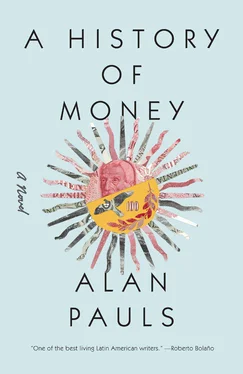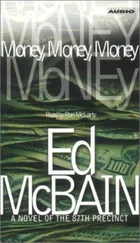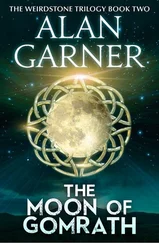Eventually, though, he ends up getting used to it. Gambling is a world, and it works. It has its own rules, schedules, customs, uniforms, backdrops, props. Like every world — no matter what dangers it contains — its founding principle is that it’s habitable. It might be distressing, but he now knows, or can guess, where his father is when he doesn’t find him where he hopes to find him, where he and maybe his mother before him most need him, sitting by his side in the middle of the night when he has one of the nightmares that take hold of him without waking him up and make him sit up very straight in his bed, like Pinocchio, his eyes open and as unseeing as coins, or calling the pediatrician after taking the thermometer out of his armpit, or cleaning the bits between his toes. It’s much worse, really, to imagine him crossing Rio de Janeiro at night in a brightly colored Volkswagen Beetle flying at the speed of light in search of a nameless, faceless debtor who no doubt couldn’t have anything further from his mind than paying the debt he’s about to be reminded of.
Besides, it’s been clear since very early on, since before he could think for himself, as they say, that if there’s anyone who can determine where life is, it’s his father. In fact, he makes himself the authority on its everyday allocation (though his own existence demonstrates, perhaps in spite of itself, that there’s nothing less certain or less obvious than the things we take for granted when we talk about life) and, like a surveyor, traces the frontiers — or rather reveals the invisible ones that were always there — between simulations of life and real life, shams and experiences, disguises and the naked truth. Even when he was a young boy, accompanying his father on his rounds through the business district was like taking a crash course in the art of appraising other people’s lives. (Although “appraising” carries a trace of optimism: his father is a brutal evaluator, for whom nuances are pure affectation or gradations of fear. For him, there are two options: you’re either alive, or you’re dead.) You can start anytime. At the office, for example. He’s come straight from school to see him; they’re about to go out for lunch. The first lesson (like almost all of them) is conducted on the move, subtly imparted while they cross the office diagonally on the way to the elevator, fully exposed — particularly him, with his shyness, his bangs, and his pants’ knee patches torn by the schoolyard’s rough paving: an exotic animal, like all creatures from the outside who end up in the world of work — to the scrutiny of the other employees. While he walks and gives out general greetings, nodding his head and smiling, his father lets him in on the death certificates he’s already signed: “The fat woman with the hairband: dead. The guy typing with two fingers: dead. That one selling coffee: dead. That ugly woman who talks to you like you’re three years old: dead, dead, dead.” The sequence shot follows them into the elevator that jolts them downstairs, taking in the operator, who’s practically asleep (dead), through the lobby, with the doorman who’s shuffling envelopes with greasy fingers (dead), into the street, with the redheaded guy selling candy at a kiosk (dead), the woman selling flowers (dead), and the newsstand owner closing his stand to go eat (dead). All dead. This is essentially the whole lesson. Dead: which is to say — according to the variety of existentialism prevailing in the region at the time, a civil servants’ kind of existentialism, with the expert on accountants’ woes Mario Benedetti in the role of Albert Camus, his novel The Truce in that of The Rebel, and his own father in that of official spokesperson for the dogma — perpetual hostages in the cells of a wretched, obligatory, monochrome life (gray being the color of horror vacui, according to the palette of the era) that offers no surprises nor any prospect of change. As time goes by, he thinks he comes to understand that life — which seems so universal, so evenly distributed — is actually a rare good that shows up where he would not at first have expected to find it: in children, beggars, stray dogs, crazy people — the only ones, according to his father, who meet the sole condition that makes life real: having the nerve to challenge everything. The barefoot boy putting a dirty hand through the window of a car stopped at a light; the beggar howling in an alley, covered in bags of trash; the puppy boldly sniffing the vulva of an arrogant Afghan hound; the madman and his private world of burning souls and organs consuming one another: these are the few happy anomalies his father seems to recognize in this general theater of the dead. There’s more life there, he says, in that human wilderness, in those bodies covered in calluses, scabs, scars, than anywhere else.
He agrees in silence, because at a certain age any more or less self-assured show of authority is met with agreement. Even so, he would like to learn, to know where his father got his skill for tracing the dividing line, which signs to look out for and how to read them in order to decide what is genuine, free, sovereign life, and what is the parody that attempts to usurp it. Even at this age, he likes solid reasoning. He can admire the edge of a decision, or the timely impact of a bombshell, but what captivates him about both is also what frightens him: how sudden they are, and how soon they’re over. Besides, if the taxi driver who spends his whole life cursing the other cars on the road is dead, as dead as the cashier who serves them at the bank, who spends hours counting other people’s money without even lifting her head, and as the waitress in the phony Italian restaurant where they usually have lunch, who’s red with embarrassment at the prostitute’s uniform she’s made to wear, a shirt undone to her belly button and a tight skirt that hardly covers her buttocks — if all these people who for better or worse breathe, peel open their eyelids every morning, and feel the icy thrusting of water at their gums, and are scared, and speak to other people are dead, oh so dead, as his father says of the ugly woman at the office who waves a useless hand in the air to ingratiate herself to him from a distance, and generally of more extreme cases, those that no earthquake or revolution could resuscitate, what about that close family friend of his mother’s husband, who leaves behind a widow and two orphans, also leaving his mother’s husband in a state of shock, dreaming about his body at the bottom of the river for months, until he feels as though he can’t breathe and wakes up, his heart having almost stopped beating, pressing his pillow into his face with his own hands.
He’s his first dead person. Like all first dead people, he has the rare quality of being simultaneously implausible and inevitable. The moment he arrives in the overheated room where the wake’s being held, everything — the whispering, the soft light coming from the lamps on the floor and the tables, the furtive sound of every movement, the uniform color of the clothing, the air of monotony enveloping everything — prepares him to come face-to-face with a dead person, forces him to believe in it, to accept without a shadow of a doubt the evidence that he is dead. But when he gets to the coffin and sees the corpse all made up and dressed as if it’s going out for the night, the first thing that crosses his mind is a remark too shameful to say aloud: “Okay, that’s enough. Let’s put an end to this farce. You can get up now.” The truth of a lifeless body lacks nothing. It’s irreducible, as hard as stone. But it’s precisely this kind of impassive superciliousness that demands all the surrounding spectacle, the zealous care and beautification that turn every dead body into a strange mixture of puppet, waxwork, and actor. Even so, for all their artificiality, our first dead bodies are like a note struck by a pianist before he begins to play, which melts away no sooner than it has been heard but lingers throughout the whole piece as a key, guiding and making sense of it; they radically and permanently alter the world as we know it, injecting it with the sole possibility — the possibility of elimination — that was unimaginable to us the second before we came face-to-face with that corpse, because it was the opposite of the world itself.
Читать дальше












